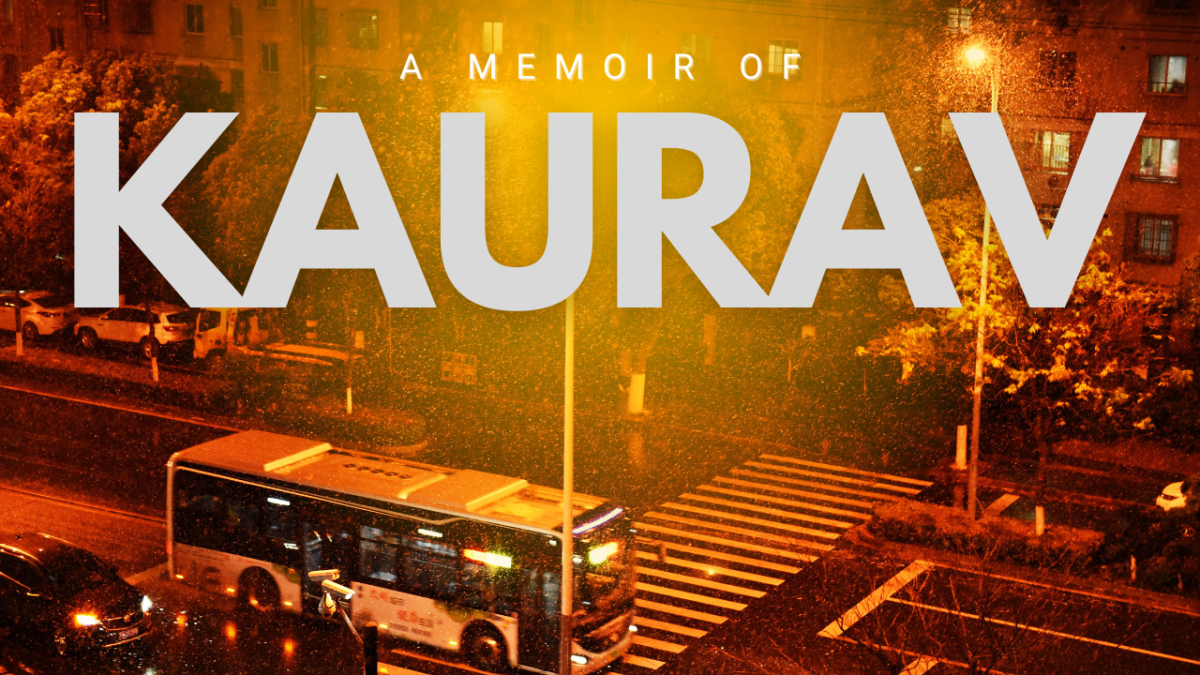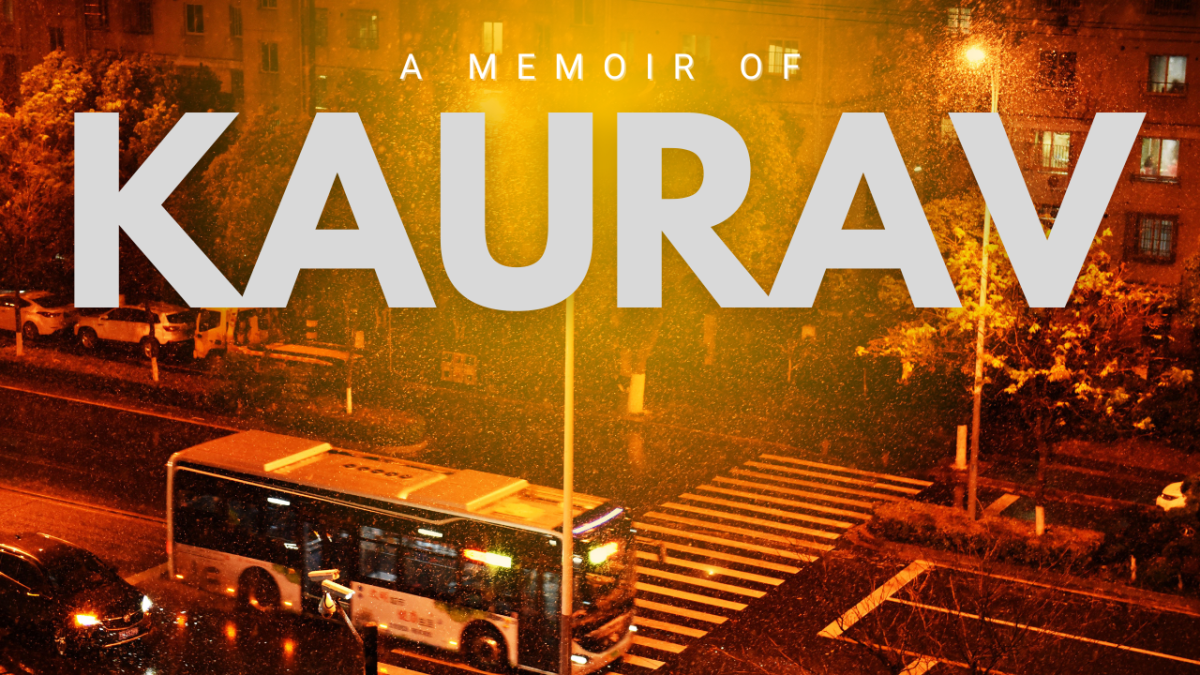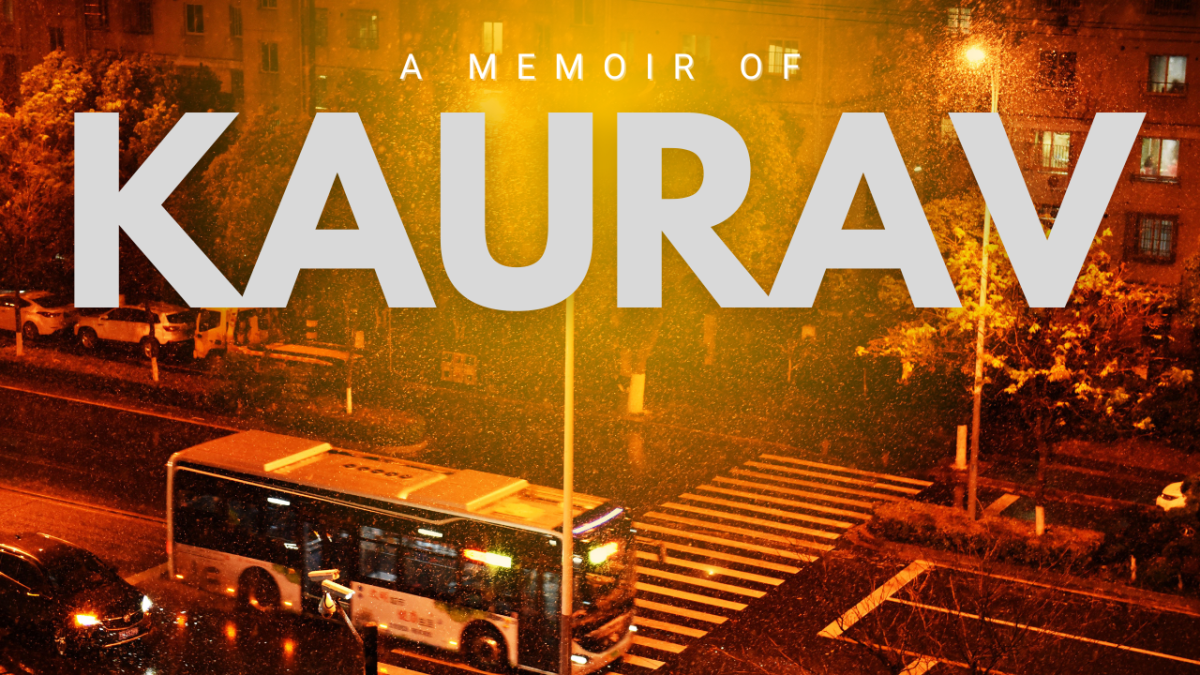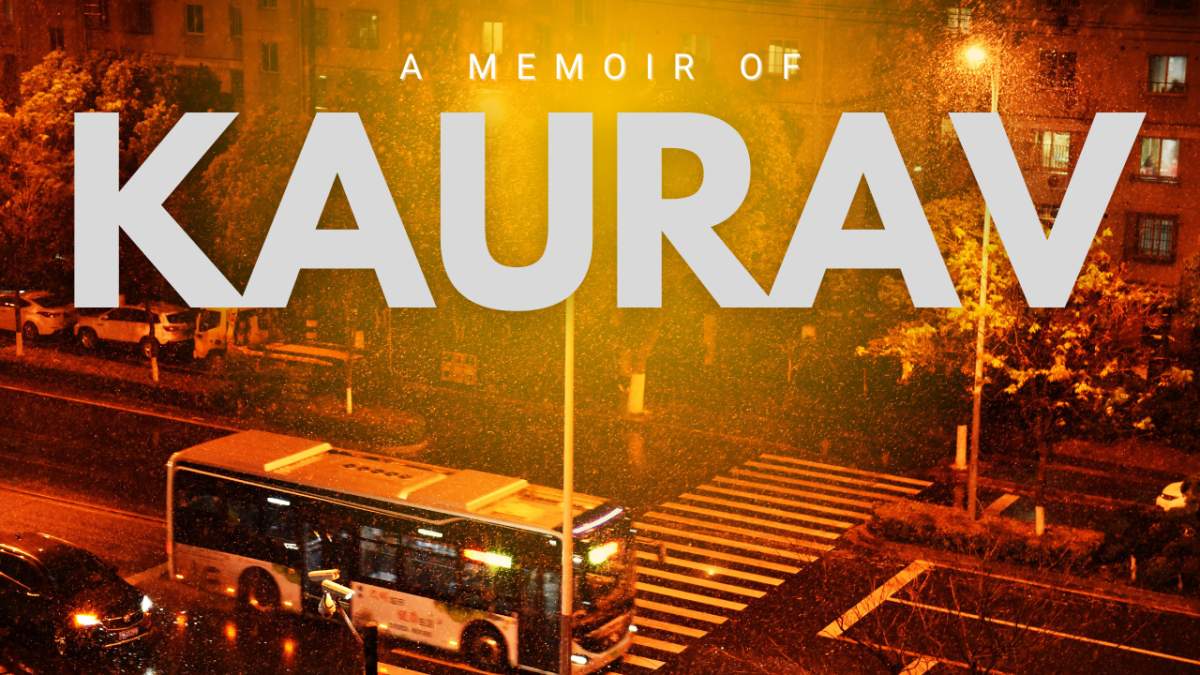Chapter 6: The Thousand Books
The memory of that first lunch came to him now as the bus climbed through the Ghats. Roni-da had listened to his poems with the attention Kaurav had never received at home. But it was the library that had truly claimed him—a thousand books lining the walls, each spine a doorway he hadn't known existed.
Until that afternoon, Kaurav had considered himself well-read. The library destroyed this comfortable delusion. Here was scholarship he couldn't fathom, literatures he had never heard of, critical works that made his own reading seem provincial. The sight had been both humbling and intoxicating. His heart, still raw from the argument with Sohini, had found refuge among those shelves.
By evening, the other troupe members had arrived. Vismaya's surprise at seeing him again had been genuine, expressed later in the gift of a Gold Flake cigarette after rehearsal. They were working on Abhinetri—one of Roni-da's own plays, not Tagore this time.
During rehearsal, Roni-da had called him forward. "I want you to design a scene," he had said, as if Kaurav belonged there, as if this were natural. The request had caught him off guard. He had outlined something quickly—a staging idea that felt obvious to him but seemed to interest the others.
"Now act it out."
The words had fallen like stones into still water. Kaurav had never considered acting. Writing was solitary work, controllable. Acting meant exposure, collaboration, the possibility of failure witnessed by many eyes.
He had frozen. The room full of experienced performers had waited. His explanation of the scene—delivered standing before them all—had felt clumsy, inadequate. When Roni-da asked Vismaya to demonstrate instead, Kaurav had retreated to his chair behind the director, thinking: Was this really necessary? I never said I wanted to act.
Vismaya had executed the scene flawlessly, earning applause that made Kaurav's inadequacy more apparent. He had begun to regret his criticism of Raktakarabi. Perhaps honesty was not always wisdom.
"Don't worry, Kaurav," Roni-da had said without turning around. "You'll perform the scene on stage tomorrow."
The man's ability to read his thoughts had been unsettling. Vismaya later said such intuition existed only between mothers and children. But Kaurav suspected it was simply the practiced observation of someone accustomed to managing fragile egos.
Before leaving that night, he had apologized for his comments about the previous evening's performance. Roni-da had joked about it in front of the others—was he regretting having to act? But privately, walking him to the door, the older man had explained the constraints of collaboration.
"The set design was done by a particular artist," he had said. "Out of respect, to avoid offense, I had to use elements I didn't entirely like. Your observation was correct."
Then, more seriously: "You spoke your mind. Your feeling was justified and true. There's no reason to apologize. Giving wrong advice or making false comments about art—that would be a disservice. That harms the artist."
The bus rounded another curve, and Kaurav shifted in his seat. Two years later, he understood what Roni-da had been teaching him that first week. Honesty in art was not cruelty but necessity. The willingness to speak truly about what you saw—this was not optional for someone who hoped to make anything worth making.
But understanding the principle and living by it remained different things. How many times since then had he stayed silent when he should have spoken? How many compromises had he accepted in the name of keeping peace, maintaining relationships, avoiding the discomfort of difficult truths?
The thousand books in Roni-da's library had been his first lesson in humility. The rehearsal room had been his second—the discovery that knowledge without courage was merely decoration. Tomorrow's performance had been his third, though he couldn't have known it then.
Outside the bus windows, the hills rolled past in darkness. Somewhere ahead lay Mysore, another stage, another chance to choose between comfort and truth. The young man who had stood tongue-tied in that rehearsal room two years ago was still there, still learning to distinguish between honesty and harm, still carrying the weight of those thousand books and what they demanded of anyone who hoped to add even one more to their number.




Comments (0)
Rate this Article
How do you feel about this article?
Comments (0)
No comments yet
Be the first to share your thoughts!
Join the Discussion